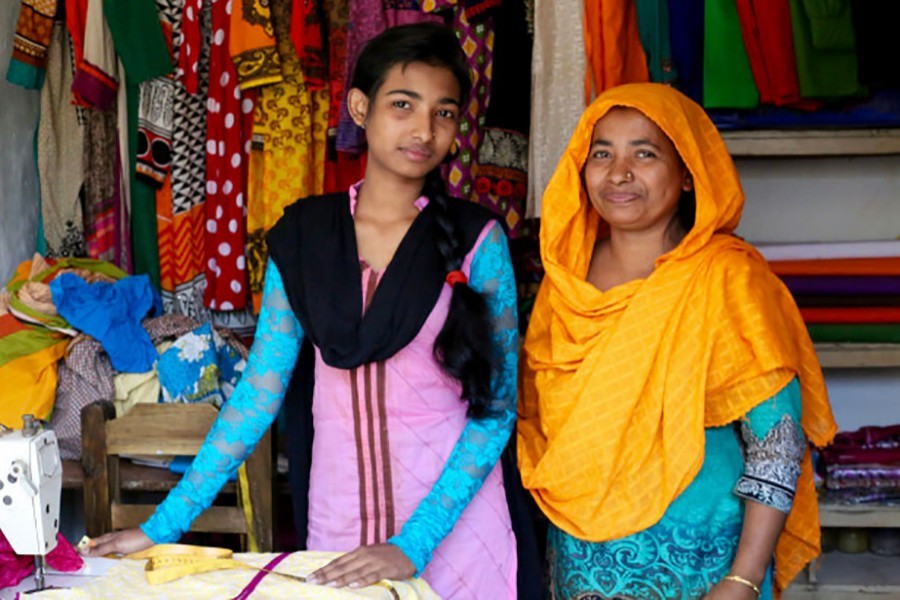Fiscal policies ill-equipped for women entrepreneurs
Experts for special funds, tax holiday for them

Published :
Updated :

The country's fiscal policies are yet to be fully equipped to support start-up women entrepreneurs at grass-roots level, experts said.
Barring the income tax law, no other fiscal law, be it Value Added Tax or customs, has the provisions considering gender aspects.
According to experts, women in remote areas having lower turnover and limited market access can grow their businesses with favourable fiscal policies.
As per the Income Tax Ordinance-1984, female taxpayers enjoy a higher annual tax-free limit of Tk 3,00,000 compared to Tk 2,50,000 for their male counterparts.
However, the tax benefit is meant for the female taxpayers who have a certain level of annual income.
In the VAT and customs laws, there are no such provisions to facilitate women entrepreneurs involved in low, medium and small enterprises.
Abdul Mazid, former chairman of the National Board of Revenue, said the government pledged a gender-friendly budget, but it is absent in fiscal measures.
"Many women associations come up with several pre-budget recommendations every year. But those mostly remained unimplemented in fiscal policies," he added.
The UNDP survey findings said not a single women-owned micro, small and medium enterprises is directly involved in cross-border trade.
Bangladesh Chamber of Industries (BCI) adviser Manzur Ahmed said tax benefit could be offered to women entrepreneurs involved in micro-level businesses to help them flourish.
Micro-level women entrepreneurs have limited access to finance and need additional support, he added.
Mr Ahmed said fiscal incentives like tax holiday for a certain period for women entrepreneurs in micro businesses could be considered by policymakers.
Md Shahadat Hossain, former vice-president of the Institute of
Chartered Accountants, Bangladesh (ICAB), said the definition of women entrepreneurship should be clear before offering the benefit.
"Tax benefit might be abused by vested quarters without a clear definition," he added.
As per the industrial policy, a woman who owns a 51 per cent share in a business is considered an entrepreneur.
In the budget for fiscal year (FY) 2018-19, the government allocated Tk 1.37 trillion for women's development.
However, it dropped the previous year's allocation amounting to Tk 1.0-billion women entrepreneurship fund in the current budget.
Bangladesh Women Chamber of Commerce and Industries (BWCCI) president Selima Ahmad said women entrepreneurs' plea for disbursement of the special allocation remains shelved.
This resulted in the non-utilisation of the fund in previous years, she told the FE.
Also a lawmaker, Ms Selima held bureaucratic roadblocks responsible for this despite the policymakers' willingness.
Officials of the revenue board, however, hold differing views on the women-friendly measures in the VAT law, fearing abuse of the facility. They said it is quite difficult to incorporate such provisions in the indirect tax laws as consumers pay the tax.
In the pre-budget proposals for FY '19, the BWCCI sought tax holiday for the first three years for female entrepreneurs-owned businesses.
It also sought tax benefit for capital machinery import and tax and VAT exemptions for women-run businesses with an annual turnover of up to Tk 5.0 million.
doulot_akter@yahoo.com


 For all latest news, follow The Financial Express Google News channel.
For all latest news, follow The Financial Express Google News channel.